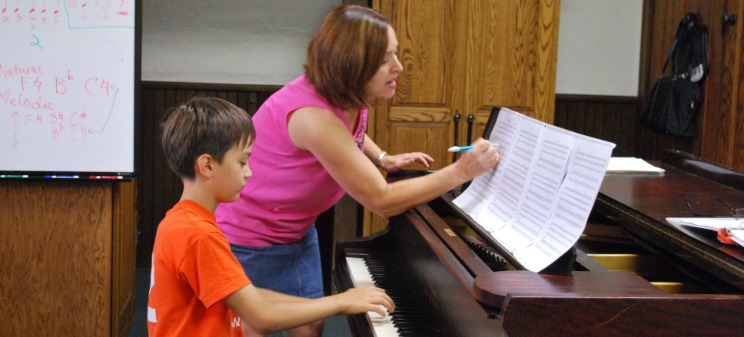
Unlocking the Potential: Piano Lessons for Autistic Children
Autism is a complex developmental disorder that affects communication, social interaction, and behavior. While each autistic child is unique and may have different needs, interests, and talents, many parents and educators have found that piano lessons can be highly beneficial for children on the autism spectrum.
The Benefits of Piano Lessons for Autistic Children
1. Improved Focus and Concentration
Learning to play the piano requires concentration and focus, skills that can be challenging for some autistic children. Regular piano practice can help improve these skills and teach children how to stay focused for extended periods of time.
2. Enhanced Motor Skills
Playing the piano involves using both hands independently, which can help improve fine motor skills and hand-eye coordination in autistic children.
3. Emotional Expression
Read more about Piano lessons for Autistic Child here.
Music has the power to evoke emotions and feelings that may be difficult to express verbally. Playing the piano can provide a creative outlet for autistic children to express themselves and communicate their emotions.
4. Social Skills Development
Group piano lessons or performances can help autistic children improve their social skills by interacting with peers, taking turns, and working together towards a common goal.
Frequently Asked Questions
How can I find a piano teacher experienced in working with autistic children?
Ask for recommendations from other parents of autistic children, contact local music schools or therapy centers, or search online for teachers who specialize in teaching music to children with special needs.
How can I help my child stay motivated to practice the piano?
Set achievable goals, use positive reinforcement, incorporate rewards or incentives, and make practicing fun by playing games or learning their favorite songs.
What if my child has sensory sensitivities or aversions to certain sounds or textures?
Work with the piano teacher to create a comfortable and accommodating learning environment, use headphones or a digital keyboard with adjustable volume, and gradually introduce new sounds or textures in a controlled way.
Overall, piano lessons can offer autistic children a valuable opportunity to develop new skills, express themselves creatively, and build confidence in their abilities. With patience, understanding, and the right support, music can be a powerful tool for unlocking the potential of children on the autism spectrum.


